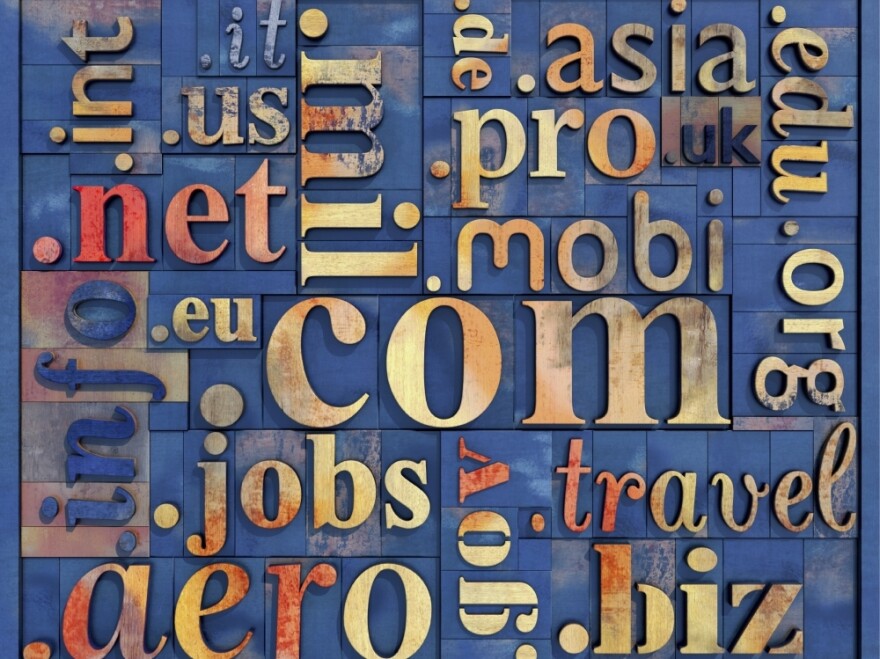This story is free to read because readers choose to support LAist. If you find value in independent local reporting, make a donation to power our newsroom today.
Who — If Anyone — Should Control The Internet?

For the first time, organizations can apply for an Internet address all their own, marking the start of a new era in the growth of the Internet.
For example, .com and .org could be replaced by .starbucks or .newyork.
The expansion was planned by the one organization empowered to regulate the global Internet — the Internet Corporation for Assigned Names and Numbers, or ICANN.
Debate over the new policy has highlighted the key issue of who, if anyone, should control the Internet.
Anyone who wants his own Internet suffix — his own domain name — will have to pay $185,000 for it. This development could be costly even for those who just want to prevent someone else from grabbing their name. Not surprisingly, ICANN has been criticized for pushing the change.
Some members of Congress actually wanted the Department of Commerce to order ICANN to delay the domain name expansion. The Internet was a U.S. creation, and ICANN was chartered by the Commerce Department.
But there is now a big international pushback over U.S. domination of the Internet, and a growing move to diminish the U.S. role.
By urging the Commerce Department to give ICANN orders, members of Congress may inadvertently highlight that effort. Kieren McCarthy, an analyst of Internet governance issues, sums up the concern about the congressional pressure this way: "It's making the Internet look exactly like the rest of the world fears that it is, which is a U.S.-controlled entity," he says.
In fact, nearly half of all Internet users today are in Asia.
This week, Rod Beckstrom, ICANN's chief executive officer, said the domain expansion will reflect the way the Internet is destined to change in the coming years.
"You're going to see more different languages in domain names, I would predict. And so it's going to look more like the world and less like one individual country. And I think that's a good thing," he said.
But ICANN's increasingly international focus may not be enough to satisfy governments that resent the U.S. role in Internet governance.
Those complaints are likely to come to a head this December, when the International Telecommunication Union — a U.N. agency — holds a meeting in Dubai to rewrite legally binding global treaties in such a way as to radically change how the Internet would be governed worldwide.
"It's extremely serious. It's fundamental," McCarthy says. "It's to the point where everyone knows that changes will be made at this U.N. meeting in December in Dubai, and now the effort is to limit the impact that those changes will have."
The move is led by China, Russia and India, all of which in one form or another favor putting the Internet under the supervision of the United Nations.
David Gross, who has represented the United States at other international telecommunications meetings, says U.N. supervision could jeopardize ICANN's current approach, under which a variety of groups oversee the Internet. It's the multistakeholder principle at work.
"Governments, the private sector, technical groups, nongovernmental organizations and others should all have a say in how the Internet should develop," Gross says.
That's how ICANN functions now. But if the Internet were brought under U.N. control, governments alone could control the Internet. Some would want to keep it free and open — but not all of them, Gross says.
"Other governments would like to see increased governmental control as a way of suppressing the free flow of information or innovation and changes that the Internet would bring," he says.
China and Russia, in particular, are proposing new restrictions on Internet activity, and those governments are big movers behind next December's U.N. conference on the Internet. They will be opposed by the United States.
Copyright 2022 NPR. To see more, visit https://www.npr.org. 9(MDA1OTI3MjQ5MDEyODUwMTE2MzM1YzNmZA004))








